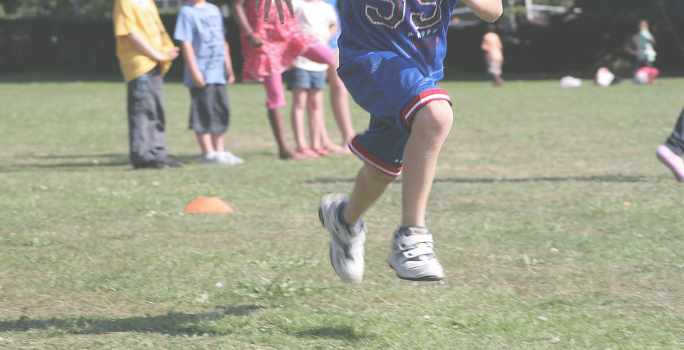I am not sure you can work with youth unless you have a high tolerance for, or general enjoyment of, goofing off.
And I’ve noticed goofing off is something we don’t really encourage in our culture anymore. Silliness, messing around, horse play, loitering and lollygagging, I think we’ve developed into a culture where there is very little room for these things. We have grave concerns over their results. We want more productivity and less idle loafing…less play.
The problem is that without play, at any age, our mental health suffers. This is particularly true for our youth, who are growing and developing. Before the age of 26, while our brain is still developing, we need more open spaces to learn as we go, to figure the world out. Working through boredom, engaging in creativity, and a sense of freedom – things all present in play give us a space to explore and test and trial and learn in safe boundaries.
Again, our culture is not play-for-26-year-old’s friendly, or play for 16-year-old’s friendly, or maybe even play for 12-year-old’s friendly at times.
Take a moment and picture what you think of when I say the word, “Play.”
People I surveyed said things like action figures, dolls, and playground balls.
Do we ever picture impromptu living-room-carpet wrestling matches, video games, or dad jokes when we think of play? Do we ever picture Instagram selfies or that special junior high laughter so inappropriately loud it makes you turn and look to make sure nothing got broken?
Play is powerful, because it is grace-filled.
Youth ministry has a special place in this world for building relationships through play:
a place where silliness isn’t instantly dismissed,
relationships with a high tolerance for shenanigans,
fun and fellowship, mixed with important service and leadership opportunities.
Play is powerful because life is stressful.
Play is our first language we learn as children, even before we learn English or Filipino or Arabic. Play is one way we communicate with our caregivers when we don’t have words to label our emotions or our experiences. Play eases the harsh impact of trauma on our sympathetic nervous system. Play is practice for life. Play supports our mental health, whether as a child, a youth, or an adult by giving us a moment to enjoy the world, instead of always feel like we’re fighting against the world. Play is a good gift of God designed to help us understand the world around us and to take a break from the stress of a broken world.
Play is powerful because it’s relational.
There are academic benefits of play, emotional benefits of play, physical benefits of play, sensory or neurological benefits of play, and relational or social benefits of play. But hold the phone: What if there were also spiritual benefits of play? What if play helped us understand God a little more and helped us grow closer to Him?
According to Psalm 18:17-19 –
17 He rescued me from my strong enemy
and from those who hated me,
for they were too mighty for me.
18 They confronted me in the day of my calamity,
but the Lord was my support.
19 He brought me out into a broad place;
he rescued me, because he delighted in me.
God sent Jesus for our salvation, not only for the seriousness of our sin and our need for rescue from evil, but also because he wants to be in active relationship with us. The burden of our salvation is taken on by Jesus on the cross, leaving us with freedom in our vocations, including play and rest. Without Jesus, there’s no relationship with God, only fear of God. God rescued David in Psalm 18 from his enemies. God rescues us from our enemies of sin, death, and the devil, freeing us to have purpose and meaning in both the big conquering moments of life, and also the small moments of life. God, in Jesus Christ, holds us in our tears, and also laughs with us in life’s unexpected joys.
Check out the list below of the seven properties of play developed by Dr. Stuart Brown, and consider this question – What overlap do you see in this list of things that make play actual-play rather than sort-of-play and the things we know about our relationship with God in Jesus Christ?
Voluntary
Freedom from time
Attraction
Purposelessness (or freedom from productivity)
Desire for continuance
Potential for improvisation
Diminished consciousness of self (zero embarrassment)
God doesn’t push himself on us. He doesn’t need time, but created it for our benefit. If anything, or anyone, is attractive, it’s God. He doesn’t need productivity from us, but invites us into the work of His kingdom. God promises a New Creation of feasting that will never end. God is surprising and we know Him fully in Christ, but can’t quite pin Him down. And there is no where on earth we can go that doesn’t give us the freedom from embarrassment that we find in the heart of God’s Son.
I think God has a high tolerance for goofing off too. I think he loves little kid play, and Jr high play, and Sr high play, and young adult play, and so on, and so on. Play connects us to God in a unique way. It’s a creation gift, an Article One of the Apostle’s Creed gift, so that we can know God in another way, alongside the Word.
And so most importantly, play is powerful, because play is His.











0 Comments